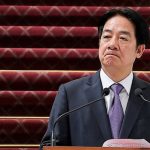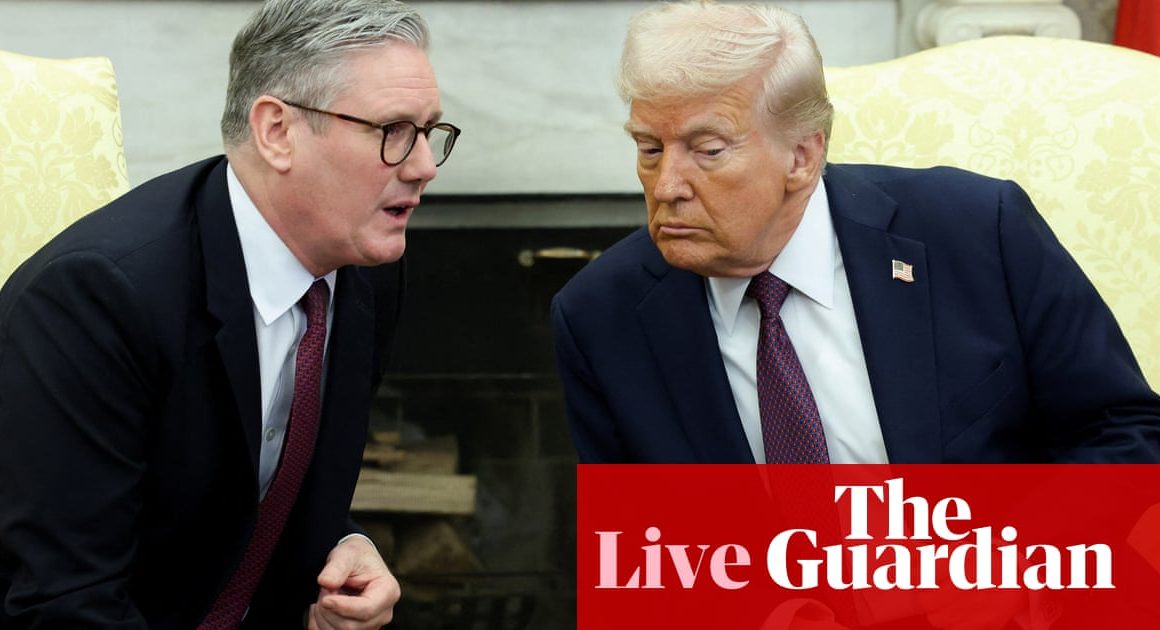As the popularity of his government has nosedived in recent weeks, Keir Starmer has turned up the heat on his cabinet ministers. Since early last month, individual secretaries of state have been summoned by the prime minister to attend 90-minute, one-to-one interrogations to check on their work, department by department.
Starmer’s officials insist that no one in Downing Street or Whitehall is panicking. Not yet, anyway. But just six months on from his landslide general election victory, the meetings are evidence of a sense of urgency and unease, and proof that the hard realities of government have dawned.
Economic growth is stalling and the country’s public services remain desperately short of money. Chancellor Rachel Reeves’s mega-budget last October provided more for them, but without growth returning the prospects for repeated extra injections look bleak. The UK economy is unable to fire on all cylinders post-Brexit, outside the EU’s single market and customs union
And the return of Donald Trump to the White House threatens a global trade war that could trigger serious economic reverberations here. Meanwhile, conflicts in the Middle East and Ukraine grind on. There is, as yet, no positive story for the Labour government to tell.
Starmer has shunned the idea of another big defining speech to re-launch himself and his prime ministership at the start of the new political year. “That is deliberate. I don’t think, in the modern age, it works,” said a No 10 insider close to Starmer. “It is not like the whole country is huddling round the telly waiting to hear from Keir what this year will be all about.”
Instead, Starmer is pushing his ministers to deliver, and become known for, big change and far-reaching reform. He wants to know in minute detail how they intend to honour Labour’s pledges to the British people to revolutionise the NHS, get a grip on small boat arrivals, improve schools and raise living standards, in time for voters to feel the benefits before the next general election.
“They are pretty intense sessions with the cabinet ministers,” said a government insider. “He wants to know how precisely they plan to deliver.” Given that the NHS sits at or near the top of voters’ priorities, Wes Streeting, the health secretary, had his grilling from Starmer first, early last month. The education secretary, Bridget Phillipson, has had her turn too. More will follow.
Inside Downing Street the concern is that 2025 may be too early to produce visible green shoots of recovery, economic or otherwise. Apart from some predicted cuts in NHS waiting times, there may be little other data to show things are getting better.
So what should the government’s overarching message be?
The answer emanating from Downing Street seems, in part, to rest on learning from a previous prime minister. One adviser to a minister said: “Margaret Thatcher was unpopular early on. Then look what happened. She had a long-term programme that people could see she delivered. We have to remain focused on ours.”
Another source inside the government added: “What we really must not do is allow current unpopularity to make us lose our nerve, make us afraid of doing the big reforms. Because it is only by doing the big reforms that we will break out of the cycle, cut NHS waiting lists, improve living standards, make progress on things like small boats.”
Holding their nerve will not, however, be easy. Starmer’s personal ratings have collapsed at an extraordinary speed over recent months, as has his party’s pre-election poll lead, as Nigel Farage and Reform UK have surged. Trump’s billionaire backer Elon Musk, who is said to be ready to make a big donation to Reform, appears intent on attacking Starmer at every turn, saying on Friday that he had already been “complicit in the rape of Britain”.
“We live in a uniquely febrile political time,” said a cabinet source, somewhat queasily.
What Labour staff fear is that Starmer could struggle to shake off his image as uninspiring and unimpressive. They worry it could stick. A couple of weeks before the general election on 4 July, his ratings were still in positive territory at +2%. Just before Christmas, however, an Opinium poll for the Observer put him on a disastrous -32%, with just 22% approving of his performance and 54% disapproving.
His team say he is unfazed. “I think Keir sees a parallel with the early period of his leadership, when he had to tackle unpopular reform of the party and was criticised for not saying more on policy. He is OK with being unpopular, with the flak and the noise about the polls. He knows he has got to get the hard work done and get through this period,” says a source.
On Monday, Starmer and Streeting will announce major reforms aimed at bringing down NHS waiting lists and delivering greater choice for patients over where they can receive treatment. At the heart of the plans will be improvements to the NHS app, which will soon be able to show test results to patients. GPs will be paid to consult specialists about their patients’ problems rather than refer them to hospital outpatient departments. The aim is that people can be treated in the community rather than clog up the hospital system.
Streeting says he wants working-class patients to have the same choices as rich people who pay for private care. “If the wealthy can choose where and when they are treated then working-class patients should be able to as well, and this government will give them that choice,” he said.
The government has a full agenda for 2025. On education, ministers are focusing on increasing pupil attendance and retaining more teachers. They will also begin introducing free breakfast clubs to all primary schools – one of the party’s more eyecatching general election commitments. Ministers have promised to build 1.5m new homes during this parliament and will soon introduce a planning and infrastructure bill that will give central government powers to bypass local councils in order to speed through development. It is also fast-tracking devolution, giving more powers to local mayors so they can better tailor services such as transport to local needs.
In parliament, Labour has a huge majority, and unrest among its MPs is not yet breaking the surface. That could change, however. More than half of Starmer’s MPs have majorities of 20% or less and could get restive if they feel they have nothing to sell on their doorsteps. The party won about 100 seats in rural areas, many of them by narrow margins, meaning they are now answerable to a category of voter they could previously largely ignore. Plans to build new homes, and entire new towns, in rural areas will not be easy to sell to voters there, on top of the incendiary inheritance-tax hit to farmers in Reeves’s recent budget.
Out in voterland, it easy to see why the polls look as they do. On Friday in Swindon, one of the bellwether towns where Labour took two seats from the Tories last July with relatively narrow majorities, the omens were mixed at best. Bread-and-butter issues were on the minds of shoppers hurrying through the town’s pedestrianised shopping precinct of chain pubs, vape shops and fast food outlets.
Steve Clarke, 49, was out with his 13-year-old daughter, who needed her phone fixed. He voted Labour in July, helping turn both of the town’s constituencies red; Swindonians had returned Conservative MPs for the previous 14 years. But now he feels life is getting harder, not easier, for disabled parents like him.
“The price of electricity and gas are going up this month,” he said rubbing his hands together in the cold. “It killed me when they put it up the last time. Why can’t the government do something about that? In [Labour’s] manifesto, that was one of the things he said he was going to tackle. Yeah – right.”
Clarke, who has lived in Swindon all his life, said he could not afford to turn the thermostat up. “I’ve hardly had the heating on all over this Christmas. I’m just sitting there with blankets on. It’s disgusting.”
He was not the only recent convert turning on the government. “We needed a change,” said Janina Tomlin, 72, who voted Labour for the first time last year. But she said the government had “alienated a lot of people” with the winter fuel allowance cut. “Bus fares have gone up. And I wish they would stop saying that they’ve got this deficit from the Conservatives … They are six months in … they need to get on with it.”
Other Labour voters were keen to give the government more time. “They are doing OK but it is a hard place to start. [Labour] have a lot of things to repair before things get better,” said Andrea Sim, 48, who was out with her family.
Her husband, Neil Sim, 50, said it was too early to judge. “Five or six months is not long enough to see any real change, especially from the point where they started: they inherited a great big steaming pile.”












